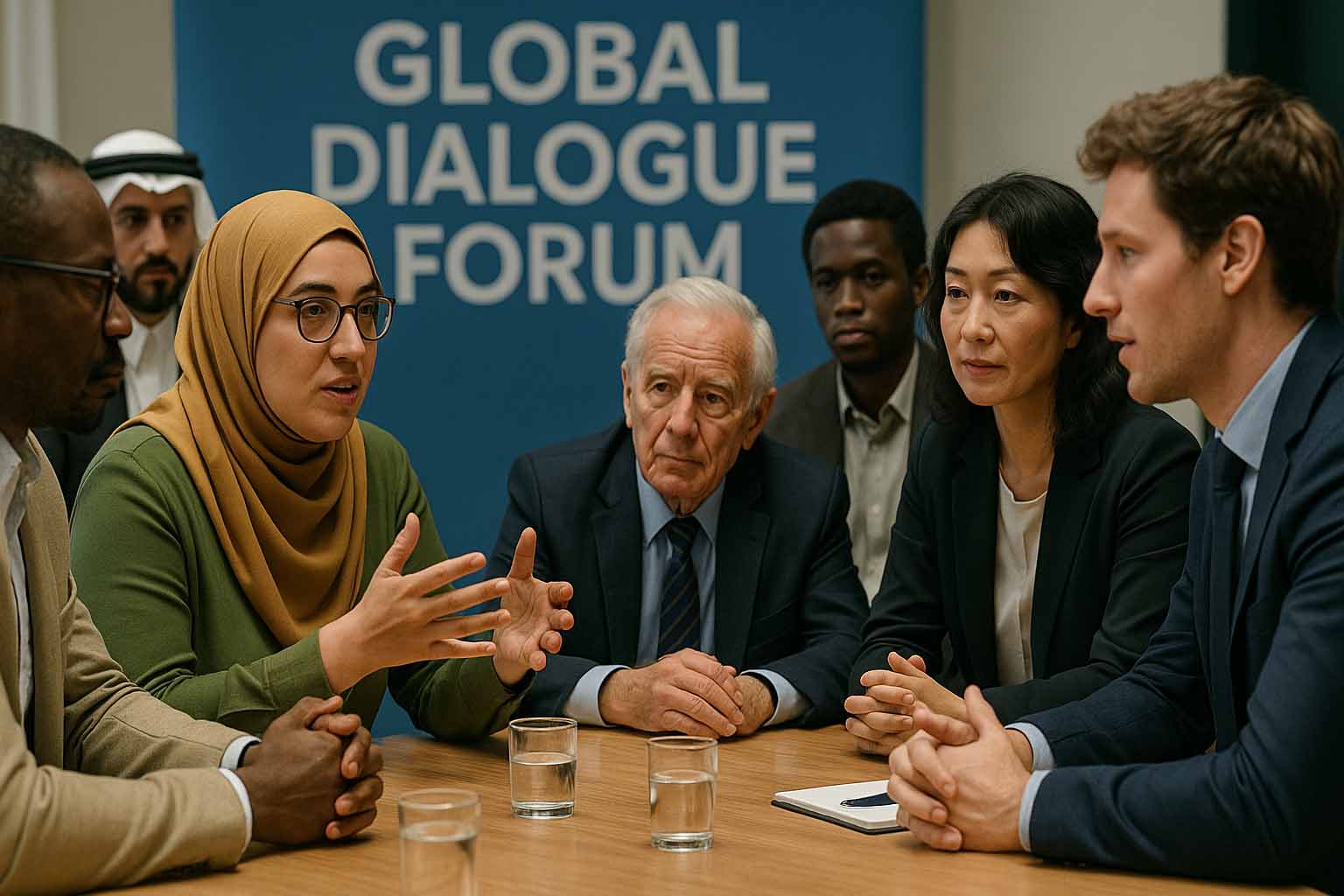Sharing Global Knowledge for Meaningful Dialogue
A Guide Written in English for a Global Audience
When decisions are made in one country, they can influence the lives of people elsewhere. Access to accurate and timely information helps clarify connections between citizens, governments, and businesses. Open conversations create space for collective action toward a fairer and more stable future. This is the spirit behind the continued work which supports open, truthful, and inclusive dialogue on a global scale.
Why Global Perspective Matters
Focusing only on regional concerns limits our ability to see the whole picture. For example, an energy policy passed in Europe can directly affect fuel prices in Asia and Africa. To understand real challenges and opportunities, we must consider factors like climate and national security in connection with one another.
A broader view also ensures every voice counts. Listening to the stories of youth in Oceania or fishers in Latin America offers a richer understanding of human reality. It’s not just about numbers or graphs. It’s about people on their hopes and fears that too often missing from formal reports.
Gathering Data and Stories from Every Continent
Reliable data is the backbone of any meaningful conversation. The Foundation works through three core steps: engaging local institutions, collecting stories respectfully from communities, and reviewing all figures to ensure accuracy.
Responsible Research Practices
The first step involves crafting a clear question. Once that’s defined, it’s easier to identify which group or region to approach. The next phase includes training local data collectors with emphasis on ethical standards such as consent and cultural sensitivity. In the final step, the gathered numbers and stories are brought together to form a full and human-centered picture.
Translating Complex Data into Clear Understanding
Most readers feel lost when facing lengthy reports or tables filled with numbers. To keep information clear, the Foundation emphasizes the use of simple language, short sentences, and visuals such as basic charts or infographics.
Making Information Understandable
Use relatable comparisons. Instead of percentages of carbon emissions, compare the volume to how many trees would need to be planted to offset it.
Reduce jargon. For instance, explain terms like “just transition” or “circular economy” in plain words without technical language.
Tell human stories. Data hits harder when told alongside the story of a family struggling with rising heat in sub-Saharan regions.
Connecting the Public with Policymakers
The success of any policy depends on trust between the public and leaders. Without that trust, even the best-written plans may fail. The Foundation acts as a bridge through open forums, webinars, and consultation sessions where people can raise questions and get direct answers from experts.
Aligning Words with Action
Each discussion aims to tie facts with real-world outcomes. When a city in Scandinavia introduces an effective public transport program, other governments are encouraged to test its relevance in their areas. This process brings evidence to the center of the conversation rather than relying only on opinions.
Why Open Dialogue Brings Long-Term Benefits
- Better Decisions – When people have access to facts, the chances of making policy errors decrease.
- Clearer Accountability – Leaders act more responsibly when they know the public is watching.
- Greater Inclusion – Marginalized groups get the opportunity to speak and have their needs recognized.
- Stronger Preparedness – Discussing risks early helps prevent small issues from becoming major crises.
Technology’s Role in Expanding Conversations
Digital tools from social media platforms to blockchain help speed up the sharing of information. But they also come with the duty to protect user data. The Foundation ensures that every project follows international privacy standards, including the General Data Protection Regulation in Europe and similar rules elsewhere.
Ethical Use of Data
Before sharing any gathered material, the identity of participants is protected. Clear guidelines are also created for how datasets should be stored and used, helping avoid misuse or violation of contributors’ rights.
Case Studies of Successful Global Dialogue
Ocean Conservation
Last year, the Foundation hosted an online forum where leaders from Pacific Island communities discussed coral reef loss. Officials from Nordic countries also joined to talk about reducing ship pollution. Just months later, three governments agreed to fund monitoring technology that would track water quality.
Clean Energy Growth in Africa
In partnership with West African universities, the Foundation introduced simple ways to measure solar energy potential in rural areas. This resulted in local cooperatives building small power stations, now supplying electricity to several villages.
Youth Voices on Climate
The Foundation led a podcast series featuring young people from five continents discussing extreme weather. These episodes were used as material for the United Nations Youth Climate Summit, leading to a recommendation that some countries include climate literacy in school curricula.
How Organizations and Individuals Can Join
Understanding both local and global contexts strengthens your voice. Begin with three actions:
Connect with research hubs to access reliable data.
Join public webinars or roundtables and prepare three sharp questions for the speakers.
Share your learnings within your own circles whether in schools, workplaces, or online groups to help the conversation grow.
Encourage your group or company to include Foundation-related activities in their yearly plans. This could be through contributing to a community-funded study or co-hosting a workshop with international partners. Even small donations, when pooled together, can drive large-scale change.
Reflecting on the Role of Shared Knowledge
Sharing knowledge across regions strengthens fair decision-making. When people listen with care and speak with honesty, trust is built and with trust comes the ability to face shared challenges more effectively.
Through the consistent asking of good questions, collection of accurate and human-centered data, and commitment to include every voice, we can grow our understanding and widen the path to workable solutions.
In the end, everyone has a part to play young or old, public servant or private citizen in creating meaningful dialogue that shapes the future of our planet.
